
Ikoyi: The Heart of Elegance and Luxury in Lagos
Welcome to Ikoyi, a serene and upscale neighbourhood nestled in the vibrant city of Lagos, Nigeria. Known for its lush greenery, high-end residences, and a blend of modernity and tradition, Ikoyi offers a unique glimpse into the luxurious side of Lagos. This neighbourhood is an oasis of tranquility amidst the bustling energy of the city, making it a perfect destination for tourists seeking a blend of relaxation and exploration. The streets of Ikoyi are lined with stately mansions, embassies, and upscale hotels, each exuding an air of sophistication. Take a leisurely stroll along the famous Awolowo Road, where you'll find an array of chic boutiques, gourmet restaurants, and cozy cafes. The local markets and shops offer a chance to buy exquisite Nigerian crafts, fashion, and souvenirs, allowing you to take a piece of Ikoyi back home with you. Ikoyi is also home to several cultural and historical landmarks. Visit the Ikoyi Cemetery, a serene and beautifully maintained site that offers a poignant glimpse into Nigeria's colonial past. For nature enthusiasts, the lush grounds of the Ikoyi Club provide ample opportunities for golf, tennis, and other recreational activities. The nearby Lekki Conservation Centre offers a chance to explore Nigeria's diverse wildlife and lush landscapes. Whether you're here for a short visit or an extended stay, Ikoyi promises an enriching and memorable experience.
Local tips in Ikoyi
- Visit Awolowo Road for a mix of high-end shopping and dining experiences.
- Explore the Ikoyi Cemetery for a historical perspective on Nigeria’s colonial era.
- Spend a day at the Ikoyi Club for recreational activities like golf and tennis.
- Don't miss the Lekki Conservation Centre for a chance to see Nigeria's diverse wildlife.
Ikoyi: The Heart of Elegance and Luxury in Lagos
Welcome to Ikoyi, a serene and upscale neighbourhood nestled in the vibrant city of Lagos, Nigeria. Known for its lush greenery, high-end residences, and a blend of modernity and tradition, Ikoyi offers a unique glimpse into the luxurious side of Lagos. This neighbourhood is an oasis of tranquility amidst the bustling energy of the city, making it a perfect destination for tourists seeking a blend of relaxation and exploration. The streets of Ikoyi are lined with stately mansions, embassies, and upscale hotels, each exuding an air of sophistication. Take a leisurely stroll along the famous Awolowo Road, where you'll find an array of chic boutiques, gourmet restaurants, and cozy cafes. The local markets and shops offer a chance to buy exquisite Nigerian crafts, fashion, and souvenirs, allowing you to take a piece of Ikoyi back home with you. Ikoyi is also home to several cultural and historical landmarks. Visit the Ikoyi Cemetery, a serene and beautifully maintained site that offers a poignant glimpse into Nigeria's colonial past. For nature enthusiasts, the lush grounds of the Ikoyi Club provide ample opportunities for golf, tennis, and other recreational activities. The nearby Lekki Conservation Centre offers a chance to explore Nigeria's diverse wildlife and lush landscapes. Whether you're here for a short visit or an extended stay, Ikoyi promises an enriching and memorable experience.
Iconic landmarks you can’t miss
Bogobiri House Ikoyi Lagos
Experience the vibrant culture of Lagos at Bogobiri House, where art, music, and culinary delights come together in the heart of Ikoyi.
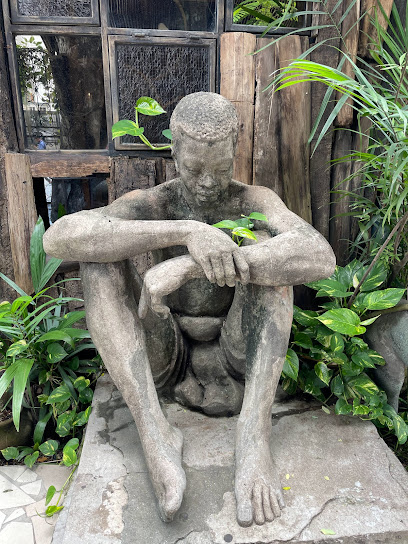
National Museum Lagos
Explore the rich tapestry of Nigeria's history and culture at the National Museum Lagos, featuring priceless artifacts and engaging exhibitions.
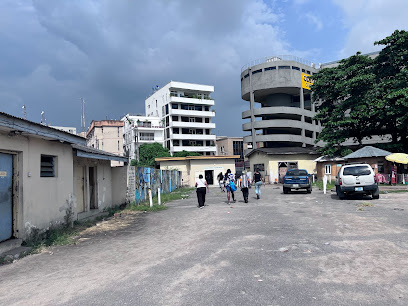
The Garden, Ikoyi
Experience the serene beauty of The Garden, Ikoyi, a lush haven for relaxation and leisure amidst the vibrant city of Lagos.
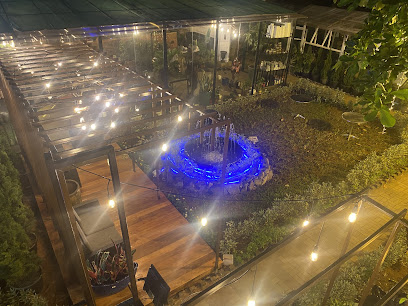
The Heritage Place
Explore the architectural brilliance of The Heritage Place, an iconic landmark in Ikoyi, Lagos, blending modern design with cultural elegance.
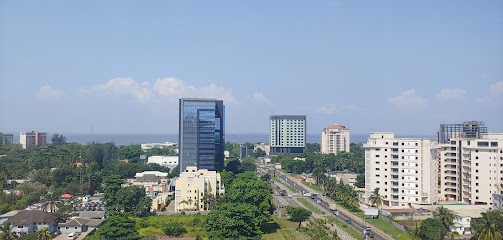
Ikoyi
Discover the charm of Ikoyi, an upscale island neighborhood in Lagos, known for its serene landscapes, vibrant dining, and cultural experiences.
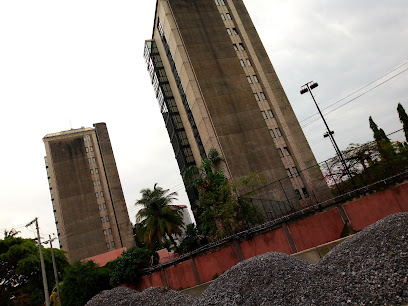
Omenka Gallery
Explore Omenka Gallery in Ikoyi, Lagos - a vibrant hub for contemporary art showcasing local and international talents.
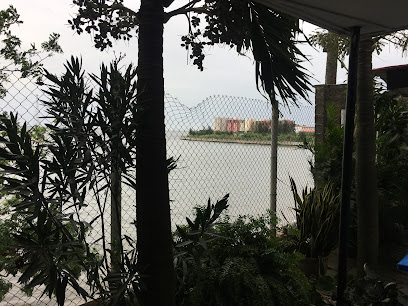
Rele
Immerse yourself in the vibrant world of contemporary African art at Rele, a premier art gallery in Ikoyi, Lagos.
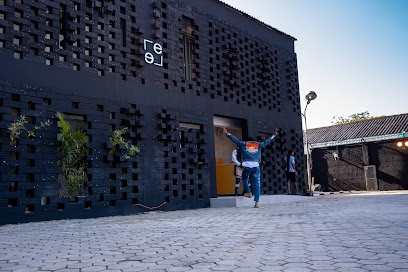
Thought Pyramid Art Centre, Lagos.
Discover contemporary African art at Thought Pyramid Art Centre, a must-visit gallery in Lagos, showcasing diverse talents and inspiring exhibitions.
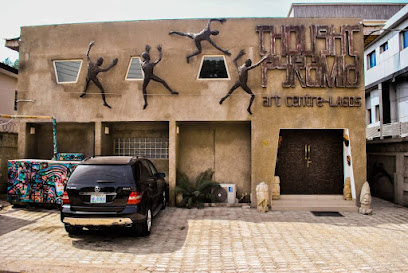
Ogirikan Art Gallery
Explore the essence of Nigeria's contemporary art at Ogirikan Art Gallery in Ikoyi, a must-visit destination for art lovers in Lagos.
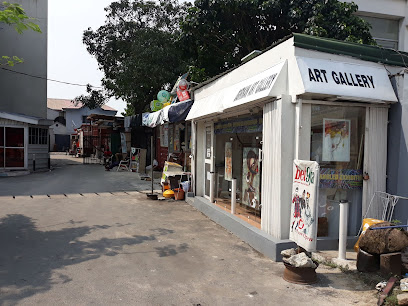
Ebony Vaults Ikoyi
Explore the serene beauty of Ebony Vaults Ikoyi, a tranquil cemetery in Lagos offering a unique space for reflection and remembrance amidst lush landscapes.
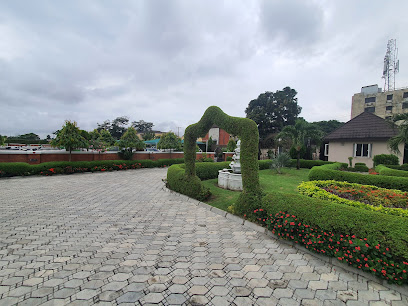
Unmissable attractions to see
Muri Okunola Park
Discover the serene beauty of Muri Okunola Park, a green oasis in Lagos perfect for relaxation, picnics, and cultural experiences.
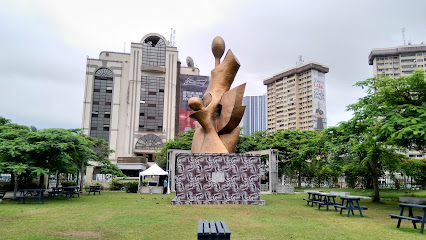
Freedom Park Lagos
Experience the rich history and natural beauty of Freedom Park Lagos, a national park that transforms a former prison into a cultural oasis.
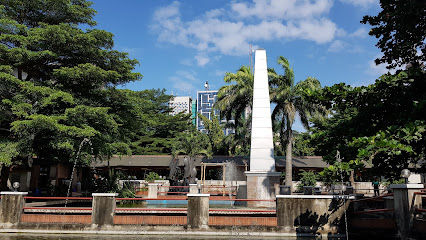
The Garden, Ikoyi
Discover tranquility at The Garden, Ikoyi - a lush park in the heart of Lagos offering a perfect retreat for relaxation and recreation.
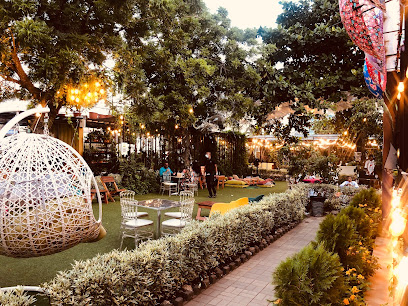
Omenka Gallery
Explore the vibrant world of contemporary African art at Omenka Gallery, a cultural gem in Lagos' Ikoyi district, showcasing diverse artistic expressions.
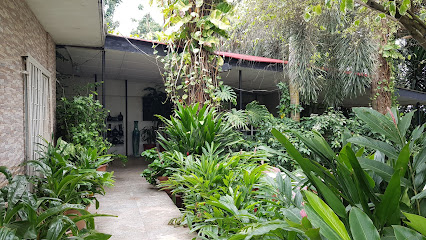
Falomo Garden By Laspark
Explore the serenity of Falomo Garden in Ikoyi, Lagos - a lush urban oasis perfect for relaxation, picnics, and picturesque strolls amidst nature.
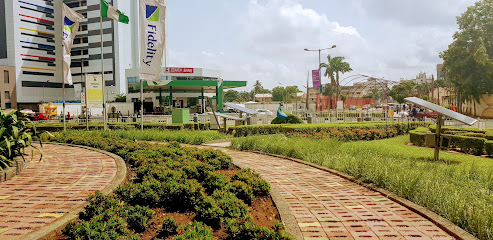
Oh La La
Experience tranquility in the vibrant Ikoyi district at Oh La La Park, a serene oasis perfect for relaxation, picnics, and enjoying nature's beauty.
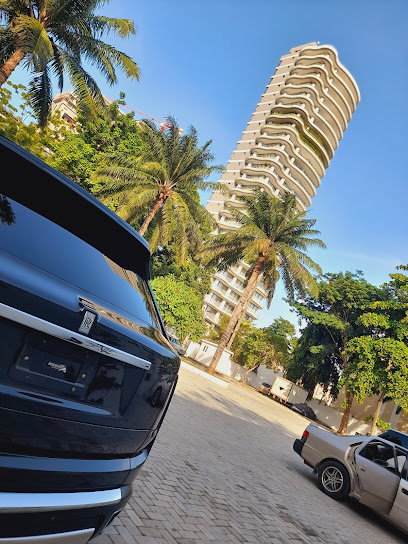
Fountain Triangle
Experience tranquility at Fountain Triangle, a hidden gem in Ikoyi, Lagos, where lush greenery and serene fountains provide a peaceful escape.
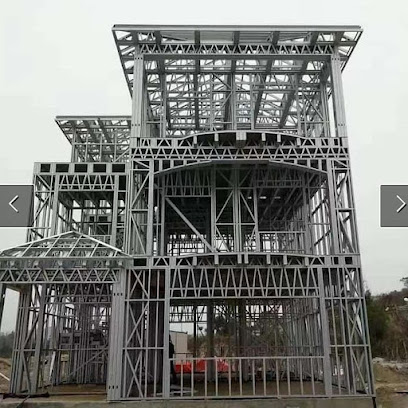
Paradise Moris
Explore the enchanting Paradise Moris, a serene escape in Ikoyi, Lagos, perfect for relaxation, photography, and creating cherished memories.
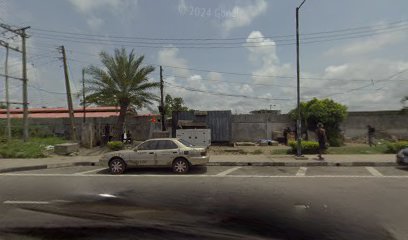
The Studio (Art Space)/The Five Cowries Initiative(creative art youthful project)
Explore The Studio in Ikoyi, Lagos - a vibrant art space dedicated to showcasing emerging talents and fostering cultural creativity.
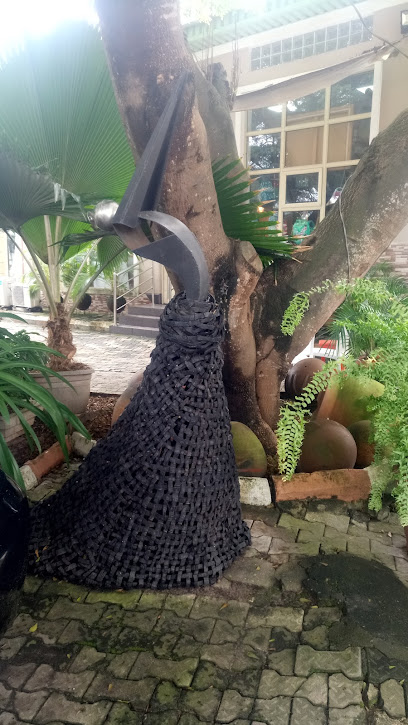
Essential places to dine
The Place Restaurant, Ikoyi
Discover delicious fast food and breakfast delights at The Place Restaurant in Ikoyi - where taste meets convenience.
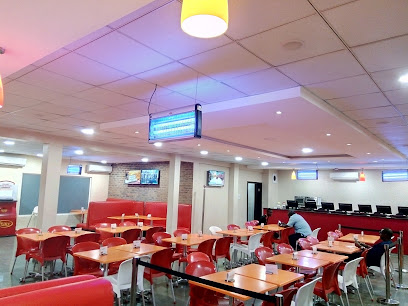
Casa Lydia
Experience delicious breakfasts and fast food at Casa Lydia in Ikoyi, Lagos – where culinary delights meet cozy ambiance.
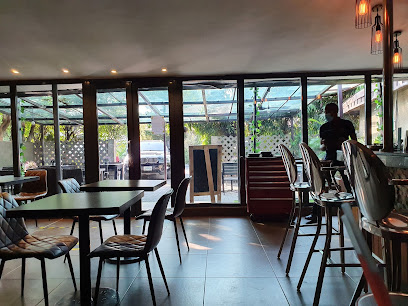
Samantha's Bistro & Grill
Discover the vibrant flavors at Samantha's Bistro & Grill in Ikoyi – your ultimate dining destination for local and international cuisine.
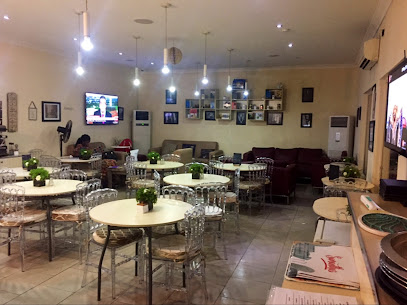
The Orchid Bistro Express
Experience delightful breakfasts at The Orchid Bistro Express in Ikoyi, Lagos - where taste meets tranquility amidst vibrant decor.
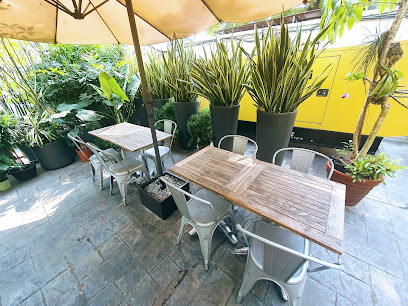
Zolene Restaurant
Savor authentic African flavors at Zolene Restaurant in Ikoyi, Lagos - where every dish tells a story.
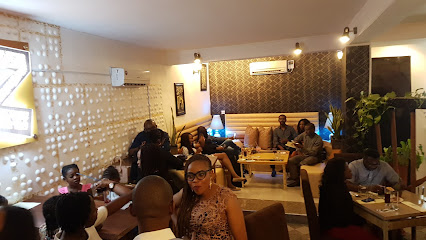
The Loft Ikoyi
Discover The Loft Ikoyi: A vibrant restaurant and lounge in Lagos offering delightful Nigerian and international cuisine with a chic atmosphere.
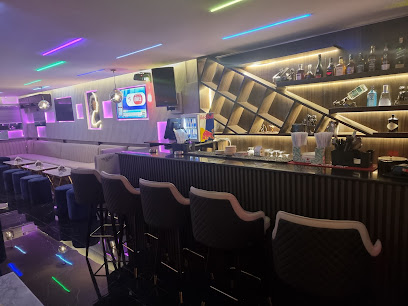
White Tree Lagos
Experience the vibrant flavors and family-friendly atmosphere at White Tree Lagos, where every meal is a celebration of togetherness.
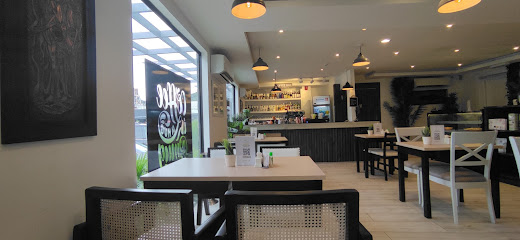
LH Privé dining Room
Discover luxury dining at LH Privé in Ikoyi - where exquisite cuisine meets sophisticated elegance in Lagos.
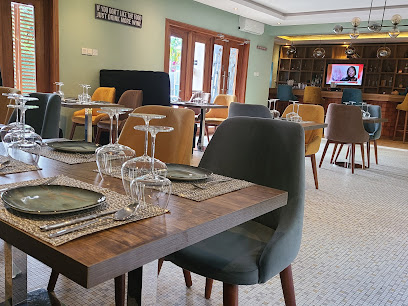
Zoe's Bistro
Discover Zoe's Bistro in Ikoyi - where traditional Nigerian cuisine meets contemporary flair amidst vibrant Lagos culture.
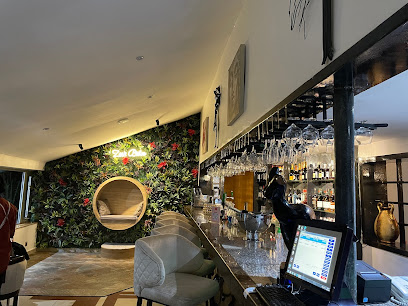
The Yellow Gate Restaurant
Discover authentic Nigerian flavors and international delights at The Yellow Gate Restaurant in Ikoyi, Lagos.
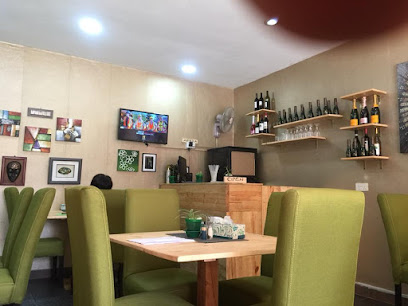
Markets, malls and hidden boutiques
Ikoyi Mall
Discover luxury shopping, delectable dining, and vibrant entertainment at Ikoyi Mall, Lagos' premier shopping destination.
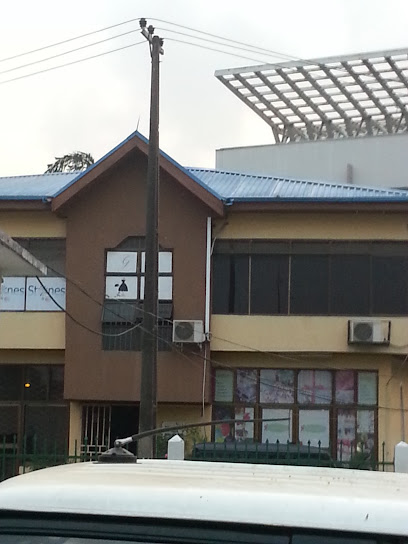
Chi Shoppe Ikoyi
Discover the culinary delights of Lagos at Chi Shoppe Ikoyi, your premier destination for local and international groceries in Nigeria.
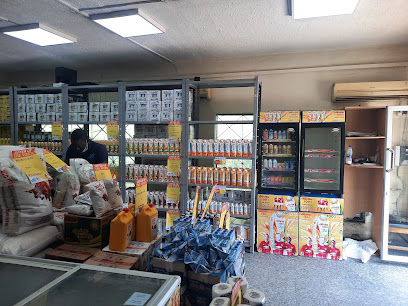
SAVVIE BOUTIQUE | Lifestyle Boutique for Women's Fashion in Lagos
Explore Savvie Boutique in Ikoyi, Lagos for exquisite women's fashion and quality hair extensions, where style meets elegance.
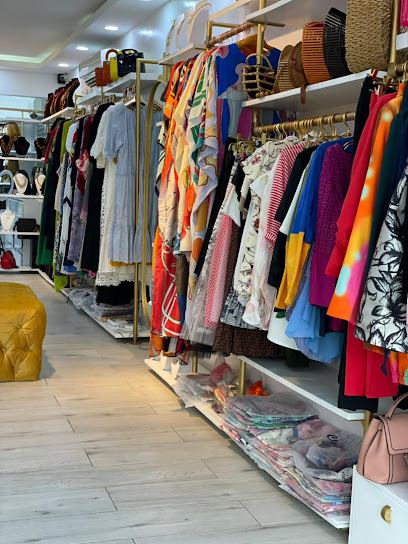
S Two Limited
Discover the charm of Ikoyi at S Two Limited, a boutique offering unique fashion and decor that captures the vibrant essence of Lagos.
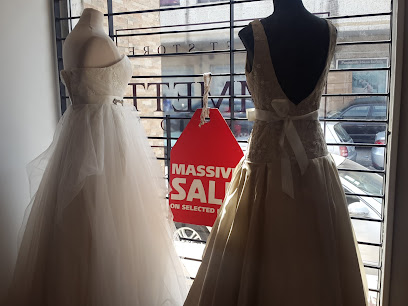
OliviaRodes Gift Store
Discover unique gifts and authentic Lagos treasures at OliviaRodes Gift Store in Ikoyi, where local art meets contemporary charm.
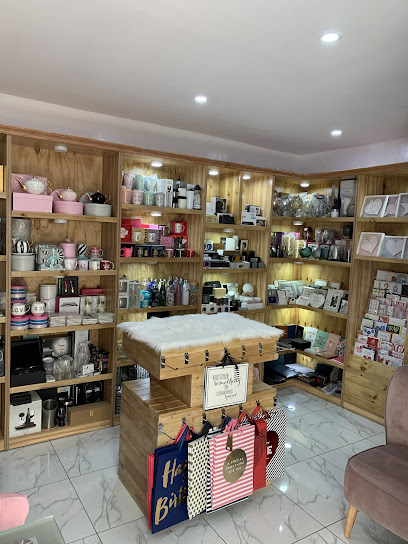
Wardrobe Boutique
Discover the essence of Nigerian fashion at Wardrobe Boutique in Ikoyi, Lagos, where style meets culture in a unique shopping experience.
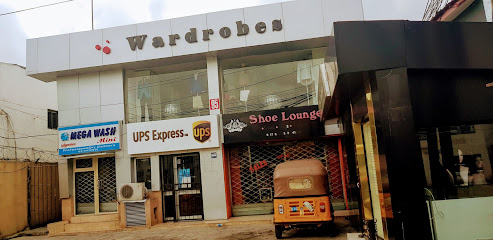
Exodus Stores
Explore Exodus Stores in Ikoyi for a unique blend of contemporary fashion and traditional Nigerian craftsmanship, a must-visit for style enthusiasts.
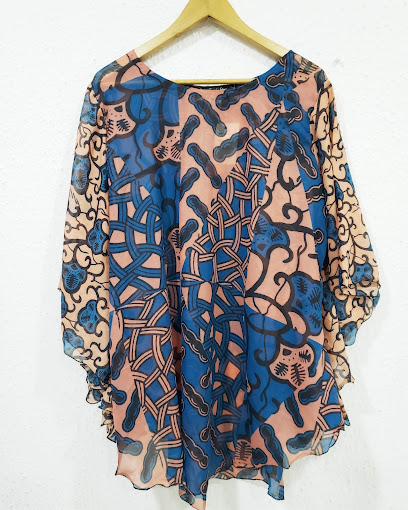
Ammaris Stores (ANKARA, Fashion Jewelries, Baby Gears, etc)
Explore Ammaris Stores in Ankara for an eclectic mix of fashion jewelry, baby gear, and unique gifts, capturing the essence of local culture.
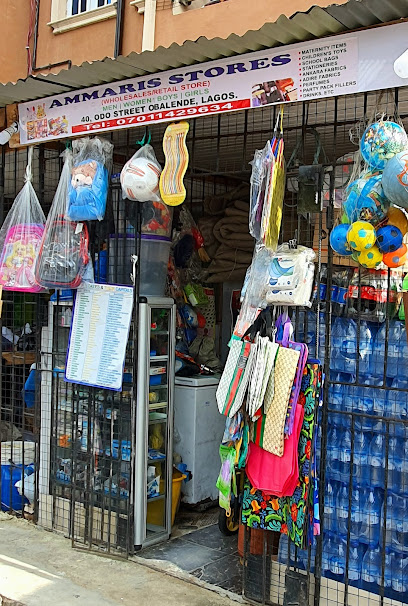
Unique Boutique
Explore Unique Boutique in Lekki for trendy fashion and personalized shopping experiences that define Lagos style.

Concept Lagos
Discover the essence of Nigerian craftsmanship at Concept Lagos, an eclectic gift shop in Ikoyi, perfect for unique souvenirs and heartfelt gifts.
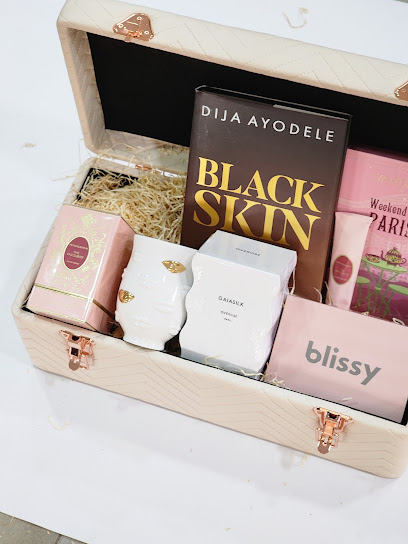
Essential bars & hidden hideouts
W Bar Lounge
Experience the vibrant nightlife of Lagos at W Bar Lounge, where exquisite cocktails and a lively atmosphere await you.
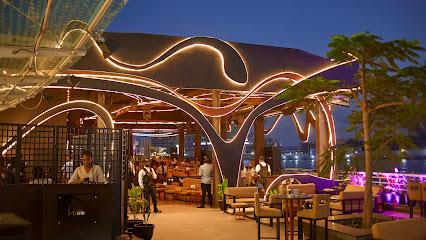
Tiger Bar
Discover the lively spirit of Lagos at Tiger Bar, a social hub in Ikoyi offering local flavors and a vibrant atmosphere.
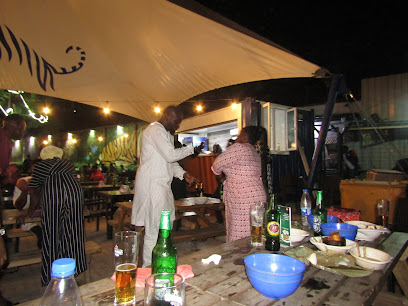
Cocoon
Experience the vibrant nightlife of Ikoyi at Cocoon, a premier bar offering innovative cocktails, live entertainment, and a chic ambiance.
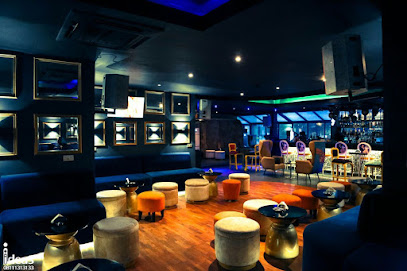
The Winehouse Guest Rooms, Shop & Lounge
Experience luxury and relaxation at The Winehouse Guest Rooms in Ikoyi, Lagos, with fine wines and elegant accommodations.
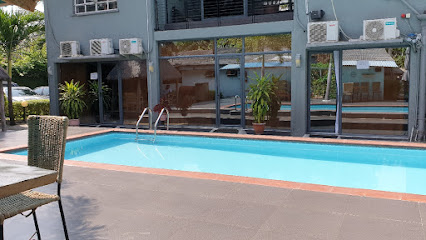
The Loft Ikoyi
Discover The Loft Ikoyi, where modern elegance meets vibrant nightlife in Lagos, offering a unique blend of local and international cuisine.
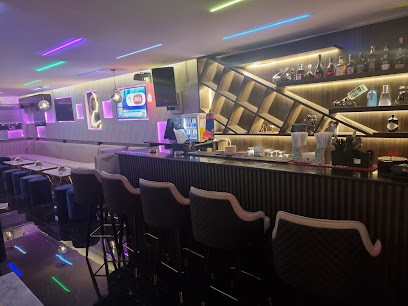
Liquidhub By Spronks
Experience the finest selection of wines in an elegant atmosphere at Liquidhub By Spronks, the premier wine bar in Ikoyi, Lagos.
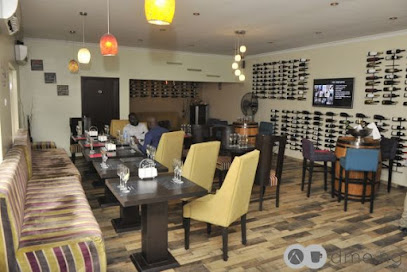
Rumens Place Ikoyi
Discover the lively atmosphere of Rumens Place Ikoyi, a premier lounge in Lagos that offers exquisite dining and vibrant nightlife experiences.
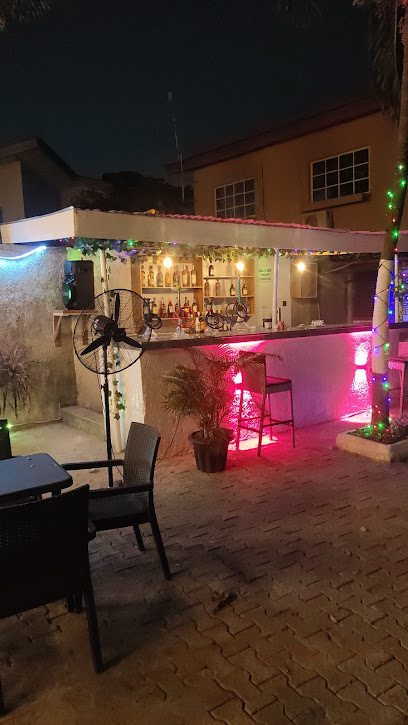
Temperature Lounge And Bar
Discover the elegance of Temperature Lounge and Bar in Ikoyi, Abuja, where sophisticated drinks meet a stylish atmosphere.
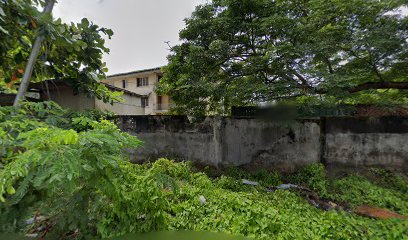
White house bar
Discover the lively ambiance and delightful drinks at The White House Bar in Ikoyi, Lagos, where nightlife comes alive.
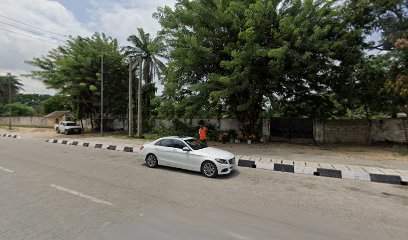
Paradise Bar
Experience the vibrant nightlife at Paradise Bar in Ikoyi, Lagos, where cocktails meet local culture in a relaxed atmosphere.
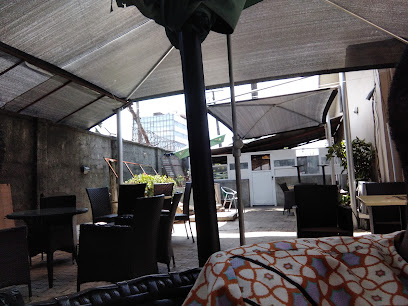
Local Phrases
-
- HelloBawo ni
[bah-woh nee] - GoodbyeOdabo
[oh-dah-boh] - YesBẹẹni
[beh-eh-nee] - NoBẹẹsi
[beh-eh-see] - Please/You're welcomeAbẹnu
[ah-beh-noo] - Thank youE se
[eh sheh] - Excuse me/SorryṢe alabaro mi
[sheh ah-lah-bah-roh me] - How are you?Bawo ni?
[bah-woh nee] - Fine. And you?Dada. Ki o si?
[dah-dah. kee oh see] - Do you speak English?Ṣe o mọ Yorùbá?
[sheh oh moh yoh-roo-bah] - I don't understandMi o mọ
[mee oh moh]
- HelloBawo ni
-
- I'd like to see the menu, pleaseMo fẹ rẹn awọn ọbe, jọwọ
[moh feh rehn ah-wohn oh-beh, joh-woh] - I don't eat meatMi kò n je eran
[mee koh n jeh eh-rahn] - Cheers!Ẹ ku igbayen
[eh koo eeg-bah-yen] - I would like to pay, pleaseMo fẹ rẹ tẹ, jọwọ
[moh feh reh teh, joh-woh]
- I'd like to see the menu, pleaseMo fẹ rẹn awọn ọbe, jọwọ
-
- Help!Ẹ jọwọ!
[eh joh-woh] - Go away!Lọ sile!
[loh see-leh] - Call the Police!Wọle si aro!
[woh-leh see ah-roh] - Call a doctor!Wọle si dokita!
[woh-leh see doh-kee-tah] - I'm lostMi ṣe agbè
[mee sheh ah-gbeh] - I'm illMi npe èrò
[mee in-peh eh-roh]
- Help!Ẹ jọwọ!
-
- I'd like to buy...Mo fẹ rẹ n wo...
[moh feh reh n woh...] - I'm just lookingMo n wo nla
[moh n woh nah] - How much is it?Bawo ni o wa?
[bah-woh nee oh wah] - That's too expensiveO dara pupo
[oh dah-rah poo-poh] - Can you lower the price?Ṣe o le mu iye?
[sheh oh leh moo ee-yeh]
- I'd like to buy...Mo fẹ rẹ n wo...
-
- What time is it?Kini akoko yi?
[kee-nee ah-koh-koh yee] - It's one o'clockOkan
[oh-kahn] - Half past (10)Hafu ti (mẹfa)
[hah-foo tee (meh-fah)] - MorningỌjọ
[oh-joh] - AfternoonỌsẹ
[oh-seh] - EveningAle
[ah-leh] - YesterdayǸjẹ́
[nyeh] - TodayǸjẹ́
[nyeh] - TomorrowỌ̀la
[oh-lah] - 1Ọkan
[oh-kahn] - 2Meji
[meh-jee] - 3Mẹta
[meh-tah] - 4Mẹrin
[meh-reen] - 5Marun
[mah-roon] - 6Mẹfa
[meh-fah] - 7Mẹje
[meh-jeh] - 8Mẹjọ
[meh-joh] - 9Mẹsan
[meh-sahn] - 10Mẹwa
[meh-wah]
- What time is it?Kini akoko yi?
-
- Where's a/the...?Nibo ni...?
[nee-boh nee] - What's the address?Kini adirẹsi?
[kee-nee ah-deh-reh-see] - Can you show me (on the map)?Ṣe o le mu mi (ni akoko)?
[sheh oh leh moo mee (nee ah-koh-koh)] - When's the next (bus)?Nibo ni o wa (molu)?
[nee-boh nee oh wah (moh-loo)] - A ticket (to ....)Ọkọ ilẹ (si ....)
[oh-koh ee-leh (see)]
- Where's a/the...?Nibo ni...?
History of Ikoyi
-
Ikoyi, originally part of the larger Lagos area, has roots that trace back to the pre-colonial era when the Yoruba people were the dominant ethnic group in the region. The area was characterized by its lush vegetation and proximity to water, making it a prime location for settlement and trade. The Yoruba culture, with its rich traditions, language, and social systems, laid the foundation for the community in Ikoyi, contributing to its unique identity within Lagos.
-
During the British colonial period in the late 19th century, Ikoyi began to transform significantly. The British government initiated extensive land reclamation projects to develop the area into a residential district for colonial officials and expatriates. This led to the establishment of several colonial-style buildings and infrastructural developments, marking Ikoyi as one of the earliest planned neighborhoods in Lagos.
-
Following Nigeria's independence in 1960, Ikoyi witnessed rapid urbanization and an influx of residents seeking opportunities in the burgeoning Nigerian economy. The neighborhood became known for its upscale residences, expatriate communities, and significant commercial activities, contributing to the overall growth of Lagos as a major urban center in West Africa.
-
In the late 20th and early 21st centuries, Ikoyi experienced a real estate boom, characterized by luxury apartment developments and high-end commercial properties. This gentrification led to a shift in the neighborhood's demographic and economic landscape, attracting affluent individuals and creating a distinctive contrast between traditional Yoruba culture and modern urban living.
-
Today, Ikoyi is celebrated for its cultural diversity, housing a mix of Nigerian ethnic groups and expatriates from around the world. The neighborhood is home to important cultural institutions, including galleries and event spaces that showcase Nigerian art and heritage. It has become a vibrant area that reflects the dynamic nature of Lagos, blending historical significance with contemporary urban life.
Ikoyi Essentials
-
Ikoyi is centrally located in Lagos and can be accessed from various neighborhoods. From Victoria Island, take a taxi or ride-sharing service, which typically takes around 10-20 minutes depending on traffic. From Lekki, you can use the Lekki-Ikoyi Link Bridge, which provides a direct route. Coming from the mainland, use the Third Mainland Bridge to reach Ikoyi, with travel times varying based on traffic conditions.
-
Ikoyi is best navigated by taxi or ride-sharing apps such as Uber or Bolt, as public transportation options are limited. Bicycles are available for rent in some areas, allowing for a more leisurely exploration of the neighborhood. Walking is also an option in certain parts, particularly in the quieter residential areas.
-
Ikoyi is generally considered a safe neighborhood for tourists, but standard precautions should be observed. Avoid walking alone at night, especially in lesser-lit areas. While most areas are secure, it is advisable to stay away from certain parts of the mainland, such as parts of Lagos Island and Ajegunle, which have higher crime rates. Always remain vigilant and keep your belongings close.
-
In case of emergency, dial 112 for police assistance or 199 for medical emergencies. The nearest hospitals are Lagos University Teaching Hospital and Reddington Hospital. Ensure you have travel insurance that covers emergency medical situations. For minor health issues, pharmacies are available throughout Ikoyi.
-
Fashion: Do dress modestly and appropriately for the climate. Avoid overly casual attire in upscale venues. Religion: Do respect local customs and be aware of religious practices. Public Transport: Do use taxis or ride-sharing services for convenience. Don't engage in loud conversations on public transport. Greetings: Do greet people warmly, using titles like 'Sir' or 'Ma' as a sign of respect. Eating & Drinking: Do try local dishes and accept food offerings. Don't waste food or refuse hospitality, as it may be considered rude.
-
To experience Ikoyi like a local, visit the Ikoyi Club 1938, where you can engage in sports and social activities. Explore the local dining scene by trying out traditional Nigerian dishes at restaurants like Terra Kulture. Attend local events or markets to meet residents and learn about the culture. For a unique experience, check out the Lekki-Ikoyi Bridge at sunset for stunning views of the Lagos skyline.
Nearby Cities to Ikoyi
-
Things To Do in Abeokuta
-
Things To Do in Porto-Novo
-
Things To Do in Cotonou
-
Things To Do in Ibadan
-
Things To Do in Ouidah
-
Things To Do in Lokossa
-
Things To Do in Aneho
-
Things To Do in Benin City
-
Things To Do in Lomé
-
Things To Do in Notse
-
Things To Do in Warri
-
Things To Do in Atakpamé
-
Things To Do in Kpalimé
-
Things To Do in Ho
-
Things To Do in Asaba











